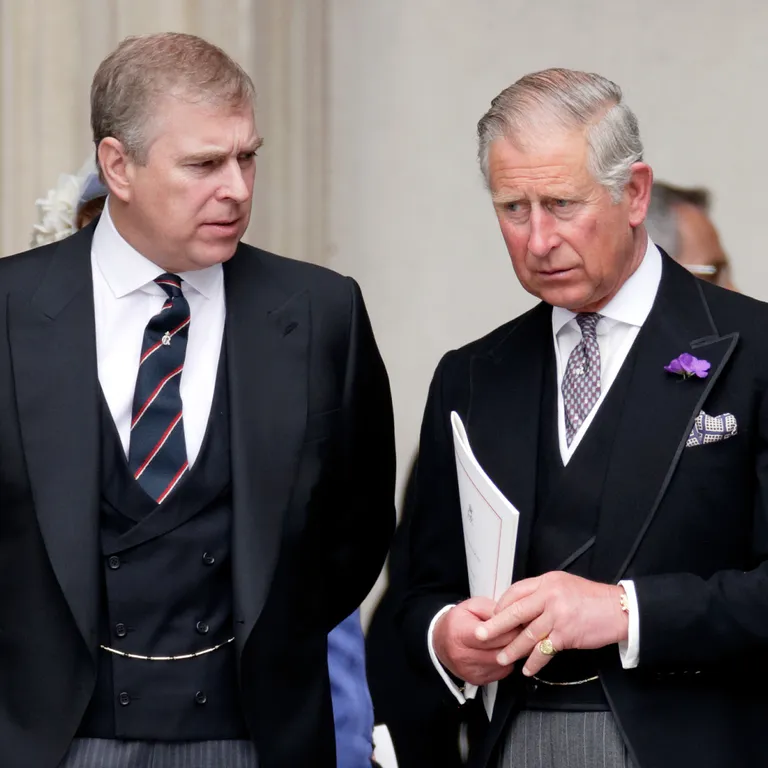CELEBRITY
Be His Own Man”: Prince William Charts a New Course, Distancing Himself from Father’s Counsel

“Be His Own Man”: Prince William Charts a New Course, Distancing Himself from Father’s Counsel
Prince William, the Duke of Cambridge, has long been considered the future of the British monarchy, a steady and reserved figure poised to inherit the throne. However, in recent months, there has been a noticeable shift in his approach to royal duties, signaling a desire to establish his own identity as he gradually distances himself from the traditional guidance of his father, Prince Charles.
The relationship between Prince William and his father has always been marked by mutual respect, with Prince Charles acting as a steady influence on his son’s upbringing. However, as the years have passed, William has become more confident in his own role and his personal vision for the monarchy’s future. As he matures, there’s a growing sense that the Duke is keen to forge a path that reflects his own values and priorities rather than adhering strictly to the expectations set by his father.
The Evolution of Prince William
Historically, Prince William has been a dutiful son, often mirroring the approach of Prince Charles, particularly in their shared commitment to environmental and charitable causes. However, a subtle shift in the Duke’s approach to royal responsibilities has become more evident in recent years. As he grows into his role, Prince William has increasingly prioritized his independence, pushing for a more modern, relatable monarchy while still adhering to its core traditions.
His stance on issues such as mental health advocacy, for example, has been notably more outspoken than his father’s, as William has championed the cause alongside his wife, Catherine, Duchess of Cambridge. Their “Heads Together” campaign aimed to break down the stigma surrounding mental health discussions, signaling a move toward a more accessible and contemporary approach to royal duty.
Additionally, in a departure from traditional royal customs, Prince William has shown a preference for taking a more hands-on role in his family’s charity work. His work with organizations like the Royal Foundation has allowed him to shape initiatives that are distinctly his own, rather than simply supporting those that were started under his father’s watch.
A Subtle Yet Significant Shift
Prince William’s distancing from his father’s counsel appears to be a gradual but clear effort to assert his autonomy. While Prince Charles has always been an advocate for environmental sustainability, Prince William has increasingly taken ownership of his own environmental initiatives, even advocating for a bold new approach to tackling climate change. His commitment to green issues has evolved, and he’s often seen as a progressive force within the royal family, not afraid to challenge the status quo and promote policies that resonate with younger generations.
For example, Prince William’s partnership with naturalist Sir David Attenborough in the documentary The Earthshot Prize is a clear representation of his desire to lead with his own vision. The project, which highlights innovative solutions to environmental problems, is more than just a nod to his father’s eco-conscious ideals; it’s a personal mission, one that reflects his evolving thinking and deep understanding of the global climate crisis.
Furthermore, as William’s role within the royal family becomes more prominent, his inclination toward carving out his own space has become more apparent. He’s increasingly visible in public engagements, giving speeches and appearances that reflect a more independent mindset. His tone often suggests a willingness to embrace new ideas and reforms, particularly on issues such as social justice and climate change, areas where his father’s more conservative stance has often been scrutinized.
The Dynamic Between Prince William and Prince Charles
Despite this shift in approach, the dynamic between Prince William and Prince Charles remains largely positive. Their relationship is built on deep respect, and Prince William has been clear in his admiration for his father’s dedication to causes like sustainability and social welfare. However, it is clear that Prince William feels the weight of his own responsibilities as the future King of England and is increasingly eager to chart his own course.
Prince Charles, while still actively involved in his various charitable pursuits, has hinted at a more passive role in the royal family’s future direction, making way for Prince William’s increasing independence. The transition between generations is often a delicate one, and it seems that Charles, aware of the shifting tides, is fully supportive of his son’s desire to be “his own man.”
A Vision for the Future
Prince William’s push for autonomy also reflects broader trends within the monarchy. The British royal family has long been a symbol of tradition, but in the modern age, there is an increasing call for relevance, transparency, and social responsibility. As the monarchy faces public scrutiny and increased calls for reform, William’s evolving leadership style presents an opportunity for the royal family to connect more effectively with the public, especially younger generations.
As the future King of England, Prince William’s journey toward establishing his own identity will be pivotal not just for him personally, but for the future of the monarchy itself. His desire to step out from the shadow of his father’s counsel marks the beginning of a new era for the British royal family—one that may be defined by more modern sensibilities, progressive policies, and a stronger connection to the people.
In the end, Prince William’s shift toward independence is more than just a personal decision. It’s a reflection of the monarchy’s ongoing evolution, as it seeks to maintain its relevance in a rapidly changing world. By charting a new course and distancing himself from his father’s counsel, Prince William is preparing to lead a monarchy that is not only future-focused but also deeply in touch with the needs and concerns of a new generation.










